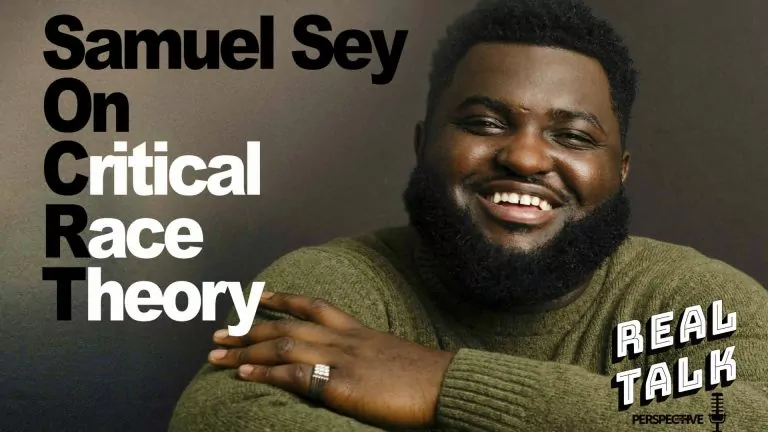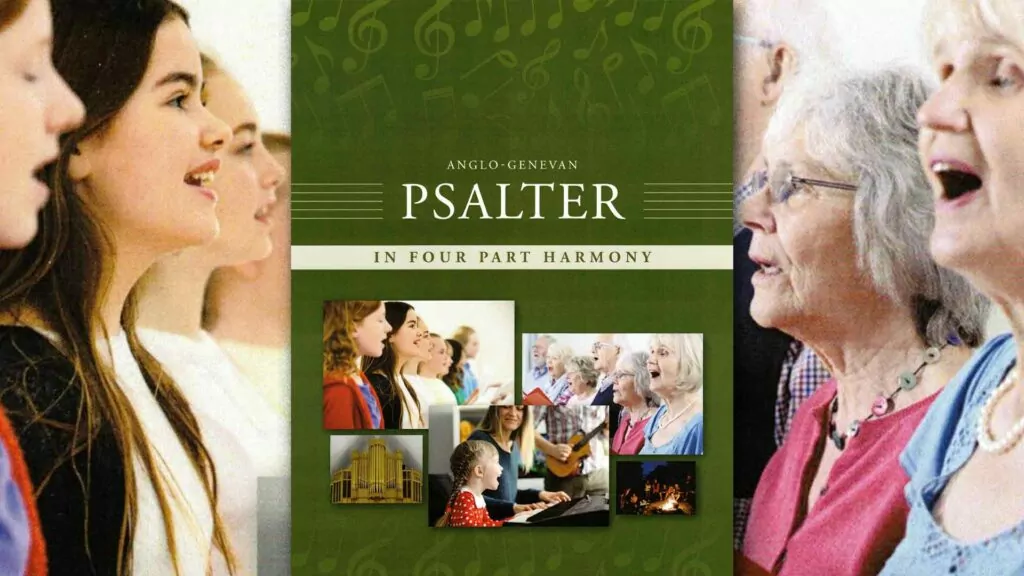This is an edited excerpt from Lucas Holvlüwer and Tyler Vanderwoudes’ Real Talk podcast Episode 43 where they discussed Critical Race Theory with special guest Samuel Sey of SlowToWrite.com. They’ve had a lot of other great conversations with all sorts of intriguing guests like Tim Challies, Arnold Viersen, André Schutten, and Jonathon Van Maren, so be sure to check them out on YouTube, their website, or any of the places you find your podcasts!
*****
Lucas Holtvlüwer: Define Critical Race Theory (CRT) for our listeners, and maybe give a couple of examples of where it’s infiltrated our society.
Samuel Sey: Critical Race Theory is very complex, intentionally. Many people call it Marxist, and some Critical Race theorists would deny that but it really is a version of Marxism, a newer version of Marxism. So, I’ll explain Marxism first in a very brief way.
Marxism, basically, is the idea that there is an essential conflict between groups in society, and these groups are the bourgeoisie, or you would say the privileged class of rich people, versus the proletariat, being the poor lower class. That’s the idea.
There’s a book called From Class to Race, by one of the founders of Critical Race Theory, Charles W. Mills. What he says is, Karl Marx was right that there is a conflict in society, a conflict that has been plaguing society from the very beginning and is still ongoing today, until there is a revolution. But what this author says is, Marx was right about there being a conflict; what he was wrong about is what the conflict was really about.
Marx said it was an economic or class struggle. Critical Race Theory says, it’s a racial struggle – it’s really between white people and black, white people versus non-white people. That is really what Critical Race Theory is about.
And it also says, in very post-modern thinking, is that Western society, especially Canada, is built by white people for white people. So even the values that we think are impartial – things like freedom, rights, impartiality, our legal system, our schools, our government, our churches, all the things we think are impartial – they’re designed by white people for white people, as a way to marginalize and oppress non-white people. That’s what Critical Race Theory is, in a very general, brief way.
The implication is that white people – unless they are fighting against the systems and the culture – are racist. If you want to abolish the system, then you are anti-racist; if you’re not for revolution, then you are a racist by nature.
In terms of examples, I don’t know if you guys know about this, but last year around Black History Month, I was invited to a school in Alberta to speak about racism. But, I guess they didn’t Google me. They did not read any of my articles, so they thought, I guess, that I was going to be teaching Critical Race Theory. They didn’t know that I was going to be actually speaking against Critical Race views.
Tyler Vanderwoude: Oops!
Samuel Sey: That’s a big oops indeed. I was actually fairly tame. I didn’t want to shock them. The title of the speech was “What is racism?” and I was defining racism biblically as partiality (Acts 10:34-35, Gal. 3:28, Lev. 19:15). Racism is simply partiality against someone because of their skin color. Or to use a more broad definition, racism is bias against anyone because of their skin color, therefore you can be racist against black people, white people, Asian people, brown people, indigenous people, it doesn’t matter.
Then I said – and this is a key part that became controversial – if racism means partiality, then systemic racism means systemic partiality. What that means is if someone claims Canada is systemically racist then they need to identify a policy or a law from the government that shows partiality or a bias against black people. Systematic racism is shown, not by outcomes, not by disparities but by clear favoritism against black people. I asked if they could find a single such law or policy in Canada. They could not find a single one. So that was it. I leave. Then a few weeks later the school wrote a public letter denouncing me for denigrating students, for denying racism, for sharing racist views, essentially calling me a racist. Now the one thing they didn’t do was mention my name. Everyone knew who they were talking about – people from the talk at the school knew they were referring to me. But I guess if they mentioned my name, someone would Google me and they would realize that, wait a minute, this guy’s black! Which probably doesn’t jive with what they’re saying.
That’s one example where, by simply defining racism through biblical theology, they deem that I’m racist because I am protecting the white supremacist definition, in their mind, of racism.
Another example: I think it was in the Durham region here in Ontario you had the school board [Editor: it was a local bargaining unit of the teacher’s union] giving non-white teachers more weight in their votes, because they believe that non-white people are oppressed and are marginalized in society. They, therefore, need to compensate for that by making their votes count more than the white person, which is, of course, racism.
But that’s an example of critical Race Theory.
There’s many more. The federal government has given – I’m forgetting what they call this project – but there’s a project from the federal government that gives black businesses more funding because they’re black, because, again, they live in a racist society, they have more barriers, therefore they need more help from the government.
Lucas Holtvlüwer: The tricky part about Critical Race Theory is that, perhaps there are grains of truth to some of the claims. There has been, obviously, discrimination in the past, there are disparities today, and people find themselves in different situations. And often you can categorize that, generally speaking, certain demographic groups based on race are in better or worse positions, financially speaking. So, I guess what I would ask is, is Critical Race Theory just a tool that people can use to look at the world, and sort through disparities, and figure out why disparities exist, or is there more of a theological, more of a worldview at play behind it?
Samuel Sey: Critical Race theorists claim it is “just a tool,” or what they call an analytic tool. But I think they’re not being honest. I also don’t mind them calling it that.
It clearly is a worldview – they see Western society, or Canada, or white people, as being a certain way. They have a definition for what is injustice or what is just. They’re not simply analyzing things. They are claiming good and evil, righteous and evil. They have a theological view as to what is right or wrong, what should be punished and what shouldn’t be. Through that worldview, they analyze the world. That is true for every worldview – every worldview is analytical by nature. So yes, they analyze things, but fundamentally CRT is a theology.
They have, what I like to call, their own past and future. We say that through Adam all humanity became sinners. We know that there’s no distinction between Jew or Greek, or black or white; we are all fallen people. The problem is Critical Race theorists would essentially say white people, since they have more power, are more evil or more “sinful“ than non-white people. That’s why they oftentimes say only white people can be racist, because white people have power and other people don’t. So they have a different theological understanding of sin.
And they also have their own future, in the sense that they have their own heaven which is really a socialist or communist utopia. The key word in Critical Race Theory is “equity.” They really believe that we can have equity, which basically means “equality of outcome” – that you can have all non-white people and all white people having an equal outcome. According to the most prominent political race theory scholar today, Ibram X. Kendi, the only way – and he’s kind of right about this – to produce equity is to discriminate. He actually says this very openly. He says that the remedy for past discrimination is present or future discrimination. That’s also because in his book How To Be An Anti-racist – which I call How To Be A Racist because the book is all about racism – he says that racial discrimination is only wrong if it leads to inequity, but it’s good if it leads to equity. That means it’s okay to be racist against white people, it’s okay to discriminate against a white person if it will lead to equality of outcome between all people. So it’s okay to bring white people down so that you can make them equal with all groups.
It never works out that way, of course. There are always going to be people who have more power than others. But just like communists, now and in the past, Critical Race theorists will be the ones on top and everybody else, including black people will be at the bottom.
Lucas Holtvluwer: I think the one topic that trips up a lot of folks, especially white folks is this idea of “white privilege” because I feel like there is some truth to it. There are differences in outcomes more so certainly in America, but still as you pointed out in previous interviews, also in Canada there’s is quite the disparity. Can you talk to folks about what this idea of white privilege is, how they can understand it, if there’s some truth there, how to navigate the truth, and separate out the truth from the Critical Race Theory
Samuel Sey: ….White Canadians generally are more wealthy than black Canadians. As to the reason why, I wrote an article, maybe three years ago now, addressing this topic. I compared the numbers in America, the UK, and Canada when it comes to the disparities between white people and black people in these three nations.
My point is this: these three nations have very different histories concerning slavery, segregation, and racism. All three nations have experienced racism against black people, for sure, throughout their history, but all three nations have very varying degrees of this racism. And yet the numbers comparing white people and black people in these nations are very similar when it comes to wealth, crime, education, and basically everything else.
My point is, if we would claim the reason for this is because of the legacy of slavery or racism, how can you make that claim when, again, you have identical outcomes but with very different histories. It makes no sense.
My explanation – which is proven because this is the common denominator between all three nations – is fatherlessness. I grew up without a dad in the home so I know this personally. Long story short, my father left my mom before I was born. It meant that since my father wasn’t home my mom was never home either because she had to work two jobs. When she was then working two jobs I had no one teaching me discipline, therefore I became a very violent kid. I was in 25 fights before I became a Christian at 19. When I said 25 fights I mean 25 fistfights. …..My mom is an incredible mother but it’s very hard to take care of a child when you are the only parent in the home.
I mention that because single parenthood is the norm for a lot of black people. Here is the issue: in America 75% of black children are raised in a household with no father. 75%. The number for white people it’s 25%. That’s a 50% gap.
That is the real issue there when it comes to disparities. It is a known fact that children raised without their fathers in the home leads to more crime, more sexual activity, poorer education, poor discipline, which creates, of course, a lot of the disparities that we already know. In Canada, the numbers are pretty similar as well. That is the issue that no one talks about when it comes to white privilege.
So if someone says to me there’s white privilege, I don’t like that term because it’s based on Critical Race Theory and I will reject it. But what I will say is this: if a white person is more privileged than a black person, generally it’s because they have more access to their father which leads to more privilege and prosperity in the home and in culture.
Listen to the whole episode below.












